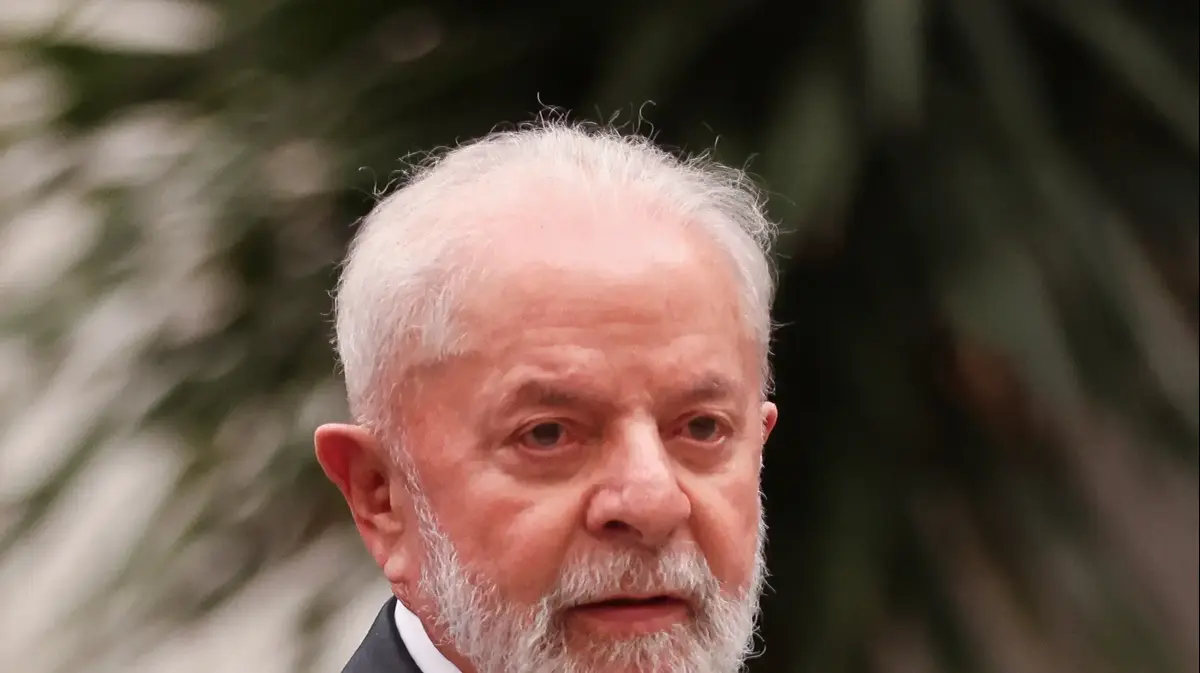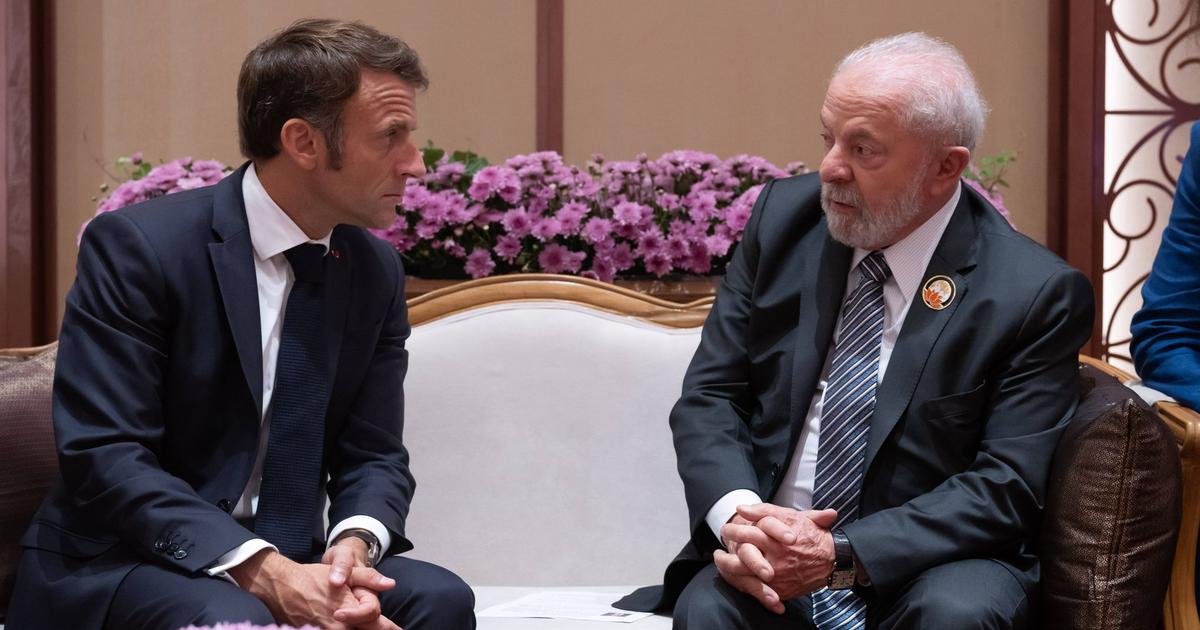The Brazilian ex-turner and ex-trade unionist, Lula da Silva, who in his years as a young union leader terrorized businessmen by taking a million metalworkers out on strike, today at the age of 76 and after having suffered 20 months in prison, after having been president of Brazil twice, he is resurrected like a Phoenix.
One step away from winning the Head of State again by dethroning the extreme right-wing and controversial ex-captain, Jair Bolsonaro, who continues to threaten a coup if he loses the elections, Lula once again honors the description he gave himself of "metamorphosis walking".
From the former US president, Barack Obama, who described him as the most charismatic politician in the world, today again the big newspapers, from the
New York Times
to
Le Monde
, are once again interested in the so-called "Lula phenomenon", which always ends up surprising and that today is about to liberate Brazil from the nightmare of a government that has frightened the country by dragging it into a new and sad dictatorial adventure.
Many, including psychologists, have been interested in studying the so-called "Lula phenomenon" that without studies, son of one of many poor families in the Northeast who had to flee from hunger and misery to rich São Paulo in search of work, the Little Lula ended up living more on the street than at home, selling sweets to earn a small change.
And it was perhaps that sad and hard experience of his childhood, in a large, torn family, which sharpened not only his intelligence, but also a realistic vision of what poverty and even hunger mean.
The street and misery were his first and best school.
The Lula phenomenon, his infinite capacity for "walking metamorphosis" as he himself came to describe, was forged more than in the books he never read, in a harsh childhood experience that later allowed him to understand like few others the anguish of workers. to whose defense he devoted his natural intelligence and his personal experience.
Without a doubt, he has always been a character, first a trade unionist and then a complex and enigmatic politician, who ended up arousing astonishment, fear and admiration.
And also surprise at his undeniable ability to adapt to the most complex circumstances, overcoming barriers that seemed impossible.
What no one can deny to the most controversial Brazilian politician, loved and hated at the same time, is his tenacity and ability to overcome, which have allowed him to always emerge from the toughest battles inside and outside his party, the PT, that he founded with another hundred personalities of the time and that ended up being the largest formation of the democratic left in Latin America.
Perhaps one of his best psychological weapons that have taken him to the summit of power against all odds and that made him always emerge victorious from his battles is due to something he learned as a child on the street and in his family drama and that is his ability of adaptation or, as he calls himself, of metamorphosis that always ends up discovering the best shortcut to overcome the pitfalls.
When he proposed to make the leap from the union to politics, he tried three times in vain to win the presidential elections.
He did not give up and in the end and thanks to a process of metamorphosis he ended up putting on his tie, dressing in
Armani
, trimming his beard and writing a letter to the employers to make them lose their fear of the terrible young man of the union strikes.
And it was always and still is his formidable ability to adapt to the circumstances that surround him after sniffing where he steps, which gives him that power mix of natural intelligence, ability to identify with those below while sitting at the table of the from above to reassure them and exorcise their fears.
When he was running for the presidency for the second time after his party had suffered the corruption scandal of the so-called
Mensalão case
that led to jail for the leadership of his party, sitting at the table of the owners of one of the most important newspapers in the country who He asked them for support, to the question about what he offered them, instead, he replied calmly: "With me, the poor will not reveal themselves."
So it was.
And so it is at this time that he is getting to govern his country again, reconquer the money elites.
Those elites that had escaped him and are recovering again in a new phase of metamorphosis, which is leaving them perplexed again and that had been fascinated by the liberal promises of Bolsonaro, who turned out to be more state-owned than anyone else.
The first surprise, which perplexed the very leadership of his party, was his decision to choose the center-right candidate for vice president, Gerardo Alckmin, with whom he had contested the elections in the past, which he ended up winning and who has the confidence of the world. of money.
And it is that the former trade unionist had immediately sensed that Bolsonaro could not be defeated without having the support of the company and the votes that go from the left to the non-fascist right.
Who better understood Lula when he was still a young and combative trade unionist, was the journalist and writer, José Neumanne, author of
What I know about Lula.
For years he followed the then young trade unionist who was already standing out for his ability to mobilize the masses of metalworkers and drag them into strikes that frightened the employers.
The young journalist followed him everywhere and his book is not condescending but rather critical, but in it he tells a detail of the intrepid trade unionist in which one of the keys to his capacity for political metamorphosis may lie.
The writer recounts that when Lula found himself in front of a crowded audience and began to speak, in a few minutes he knew what that audience liked or disliked and right away, if necessary to attract them, he was able to completely and quickly change his speech until they wrested the applause.
That ability to win over people has always been visible to those who have treated him personally, something that, on the one hand, flatters and conquers, and on the other, frightens.
When in May 2010, Lula received Juan Luis Cebrián, founder and first director of this newspaper, for an interview, I had to accompany him as a correspondent from Brazil at the time.
The interview lasted the entire morning and Lula displayed all her capacity for seduction and personal empathy.
She only needed to sing.
He got up, made nice parentheses, laughed, gesticulated as if he were among old friends.
Cebrián's piece, published on May 9, 2010, begins like this: “I prefer a carnival to a war”.
He places his worker's hand on my knee, in a gesture of complicity, of camaraderie, of evident frankness, because that is his strength and his conviction, to behave as he is, as the Brazilians truly look at him”.
At the time of saying goodbye, he himself offered to take some photos with us.
When, at my side, he put his hand on my shoulder, the chief of protocol intervened to make the photo more formal.
He took his arm off of mine, but continued to laugh as if to say, "What a silly thing to do!"
This is the Lula who this Sunday has Brazil and beyond on edge to find out if his new metamorphosis will resurrect him from the ashes that seemed to want to swallow him up forever this time.
Subscribe here
to the EL PAÍS América
newsletter
and receive all the key information on current affairs in the region















